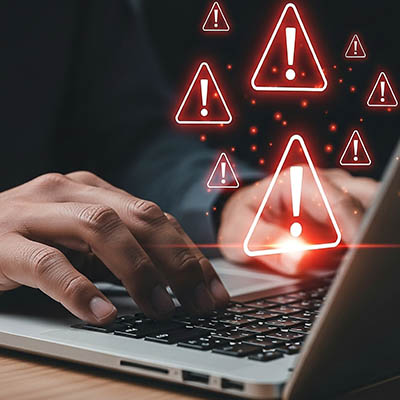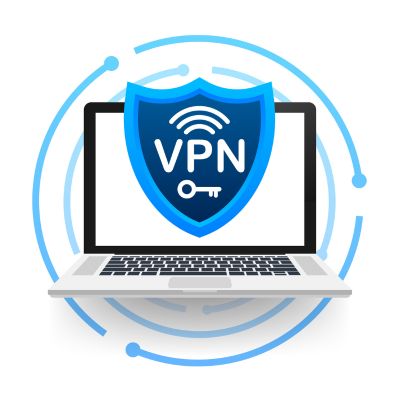Sometimes, it can seem that business technology is a bit like the weather—just wait five minutes, and it’ll change. However, for a small business, those changes can sometimes feel less like a refreshing breeze and more like a localized thunderstorm inside your server room. Of course, when you’re busy running a business, you shouldn’t have to be an amateur sleuth to figure out why your Wi-Fi is acting up. Here are a few common technology oddities your team might encounter, along with how a proactive partner keeps the “glitches” at bay.
When it comes to technology, there is a constant friction between convenience and security. No consumer device illustrates this tension better than the Ring doorbell. To most, it is a tool to catch porch pirates; to IT professionals, it is a persistent IoT sensor with a direct, unencrypted line into one of the world’s most massive cloud ecosystems. The real controversy isn’t about filming a sidewalk; it’s the transparency gap between what is being captured and what the company openly admits to. Most users believe they are buying a digital peephole, but the reality of how Amazon captures, processes, and utilizes that data is far more complex.
You’ve likely felt it: that uncanny sense that your phone is eavesdropping or that the Internet is feeding you exactly what you love and everything you hate. We call it the Algorithm; the thing that decides what we see, who we talk to, and what we believe. The algorithm isn’t a single entity; it’s a hyper-focused, data-driven librarian with one specific goal: to keep you engaged longer and longer so the company can make more money. By treating your attention as a currency, platforms have built sophisticated engines that don’t just show you content; they predict your future behavior. Here is how the world’s biggest digital companies are shaping your worldview.
Tell me if this has ever happened to you: you invest in a high-priced technology solution, only to find that the solution isn’t what your business needs. The technology is effectively a “lemon,” where it costs your business a lot of money without any real return on the investment. This sometimes happens when you use technology to fix a short-term problem without a clear long-term strategy; you lose money and productivity due to incompatibility issues, and without a strategic roadmap to move forward, you’re left wondering where you’ve gone wrong.
Remember Tay? Microsoft’s 2016 AI chatbot that the internet turned into a wildly offensive, racist mess in just 16 hours? It was a spectacular, public failure that proved one thing: Garbage In, Garbage Out. Today, the garbage isn’t just on Twitter. It’s the highly sensitive, proprietary data your own employees are accidentally leaking into the public domain.
We’ve all said it. It’s the unofficial motto of pragmatism, the quiet commitment to frugality that businesses cling to: If it ain’t broke, don’t fix it. It feels responsible. It feels safe. Here is the hard truth from an IT professional: When it comes to your business technology, this motto is a recipe for disaster. It is the single most dangerous, most expensive, and highest-risk strategy you can have.
If you’ve played with AI for any purpose, but particularly for your business’ benefit, you may have found your results less than impressive. One of the biggest challenges of working with artificial intelligence is our assumption that our instructions are sufficient, even when they are vague or non-specific. A prompt of this caliber will not produce the quality responses that you need. Instead, you need to use “prompt engineering” to come up with a request that will. Fortunately, you can improve your prompts considerably by simply remembering three things.
How do you approach decision-making for your business? While it might be tempting to forego critical thought and rely on your gut instinct for major decisions, we urge you to instead follow the data and observe what it’s trying to tell you. If data analysis sounds like pulling teeth, however, you’ll be relieved to know that AI tools have made it significantly easier to analyze large amounts of data and make more informed decisions.
Artificial intelligence, or AI, can be found in pretty much every facet of business these days, and CIOs are more tempted than ever to use innovative AI tools. There are plenty of reasons: they can increase efficiency and do the mundane things that need to be done, but are more expensive. AI is more than just for generative content; strategic implementation means implementing the right tools for your business and taking action in a calculated manner. Today, we want to explore the dangers of rushed adoption and why it’s important to carefully consider your business’ use of AI. The consequences of not doing so can be dangerous, to say the least.
What if we told you that not all VPNs were created equal? What if we said that some are meant to be used by consumers, while others are meant to be used for businesses that need to keep data secure while out of the office? Today, we want to clear up some misconceptions about what virtual private networks do, how they work, and what they actually protect you from—as well as how you can get started with a business-grade VPN today.










